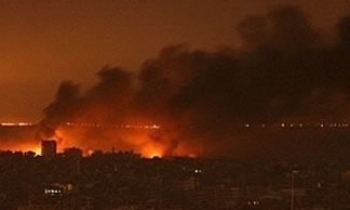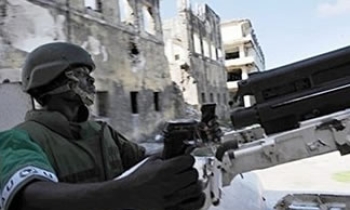Over 2,000 professionals from various walks of life including lawyers, journalists, teachers and doctors staged demonstrations in Nepal's capital Kathmandu on Sunday to protest media repression and the recent rejection by the Supreme Court of a petition seeking a stay order on the controversial media ordinance introduced by the government in early October.

The protesters chanted slogans against the ordinance "that seeks to kill freedoms that are birthrights of humans" and the court ruling that proves that "the judiciary is no more independent". Later, the rally converted into a mass gathering.
The law prepared last month also imposes tougher penalties, including longer prison terms and bigger fines, for journalists convicted of defamation. Criticism of King Gyanendra and independent reporting on the anti-monarchy Maoist rebels had already been banned since he took fired the government and assumed power on February 1.
The king has said his power seizure in the troubled Himalayan kingdom was needed to control a bloody Maoist revolt that has killed more than 12,500 people since 1996. His action has prompted protests from political parties, human rights activists and journalists demanding restoration of political freedom.
The New York based Committee to Protect Journalist (CPJ) has said that the Supreme Court's decision opens door to permanent censorship and has expressed fears that the decision could mean that journalists in Nepal are at the mercy of King Gyanendra.
The Kathmandu Post reported: Noting that New Baneswore in Kathmandu has been the most frequent venue for pro-democratic gatherings after the government banned public gatherings in most of the places in the capital, citizens christened the area as "Loktantra Chowk", "the place for "democratic gathering" in Nepali. Om Gurung, general secretary of the Confederation of Indigenous Nationalities in Nepal, declared so to loud applause from the gathering.
The president of the Nepal Bar Association, Shambhu Thapa, said that citizens are now on the fight of civilisation against barbarism. "Who are these people who are taking away the rights given to us by the parliament," he questioned. Thapa said that his assocition has taken the initiative to prevent "sewer from entering the judiciary".

Editor of the pro-left Mulyankan magazine, Shyam Shrestha, said that the media ordinance has been brought to convert the country into a haven of criminals. "It has been brought to prevent the media from exposing corruption and crime," he charged, adding that citizens already know what kind of elections are intended with the gagging of media. "The court ruling has said that anyone can loot equipment from FM stations."
Raghu Mainali, leader of Save Independent Radio Movement, said citizens have to start the "hearings on media ordinance on the streets if we want to guarantee freedom of expression for tomorrow". Declaring that the disabled had come on to the streets on their wheelchairs and with walking sticks, representative of the Organisation of Disabled, Govinda Acharya, said, "This is not the time to stay inside your houses, citizens. Come on to the streets."
Chairman of the Professional Alliance for Peace and Democracy and Nepal Professor's Organisation, Bhupati Dhakal, expressed dismay over the court's decision. "With all due respects to the Supreme Court, I want to express my deep disappointment over the court ruling," he said.
The protests were jointly organised by the Citizens' Movement for Democracy and Peace (CMDP), the Federation of Nepalese Journalists (FNJ) and Save the Independent Radio Movement (SIRM), Nepal. Various women's organizations and the Organization of the Disabled also participated.
The government has warned that it would take strong action against media establishments which defy the media ordinance. Communications minister Tanka Dhakal, who is also the spokesman for the government, asserted this on Monday, adding that the decision of the Supreme Court had "imparted the message that laws are above all and all should follow it."
The CPJ executive director Ann Cooper reacted, "King Gyanendra promised that his draconian measures against the press would be temporary. But this latest decision opens the door to permanent censorship. If the Supreme Court does not protect the basic right to freedom of expression enshrined in Nepal's constitution, then journalists are at the mercy of the King."









